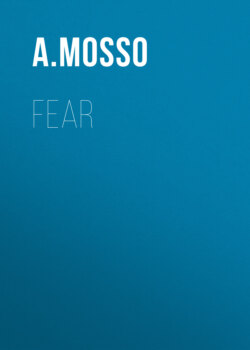Читать книгу Fear - A. Mosso - Страница 22
На сайте Литреса книга снята с продажи.
VIII
ОглавлениеTable of Contents
Pliny, in speaking of fear making one close the eyes, relates that amongst twenty gladiators scarcely two were found who did not wink when suddenly menaced.[8]
It is striking that such slight causes produce movements so pronounced that we are not capable of suppressing them. We know that our friend will certainly not poke his finger into our eye, but the conviction that it is a joke does not suffice. Even if a thick pane of glass were between us and the approaching hand, with all the force of reason and will, many would be unable to avoid shutting the eyes, as though there were in us two natures: one, animal and unreasoning which commands, and the other human and intelligent which succumbs.
Again, when a gnat or a grain of dust gets into our eye, the eye closes irresistibly by an automatic mechanism quite independent of our will. Sometimes there is not only one contraction, but a somewhat complicated series of movements excited in parts distant from the stimulus.
As a convincing example, I shall communicate what I observed in an investigation of deglutition. This act, performed unceasingly during eating, is by no means voluntary, for if we try to repeat it a few times in succession we notice at once that, as soon as we have no saliva in the mouth, every effort to swallow is in vain. In order to swallow it is necessary that a morsel of food or some fluid should touch the mucous membrane of the posterior portion of the mouth. The sensory nerves stimulated in this way communicate to the spinal cord that a body is at the entrance of the œsophagus which must be sent to the stomach. Immediately a succession of orders is issued, one after the other, by the spinal cord, so that first the upper part of the œsophagus contracts and propels the morsel a short way down, then a further order causes a contraction of the next part, then comes another order whereupon a part still lower down contracts, and so all the successive portions of the œsophagus transmit the morsel one to another by means of various separate orders until it reaches the stomach.
We have, therefore, in our nervous system mechanisms which work automatically, and produce a series of contractions directed to one object, which may, at first sight, appear voluntary, but is, in reality, mechanical and unconscious. Some of these mechanisms we bring into the world with us. If one puts a finger into the mouth of a new-born child it begins to suck. It is a machine working without discernment, as if one had touched the spring of an automatic doll; no one teaches the child, he need not learn it at all in fact, for the fœtus in the womb makes exactly the same movement. So it is with the chicken, which pecks when just escaped from the shell. In this case, what gives rise to the movement is no longer immediate contact as that of the finger in the mouth, but the impression of light and sight, which indeed is nothing else but contact with distant things by means of the rays of light. Scarcely has the image of the grain formed itself in the eye of the chicken but it pecks at it.
It suffices to observe our movements with a little attention, in order to be convinced that a greater number of them are automatic than one thinks. When we step out of bed in winter and thrust our naked feet into our slippers, the foot has scarcely touched the cold leather but it withdraws, and an effort is necessary in order to resist. We notice, too, that when the shoemaker measures us for a pair of shoes, it is somewhat difficult to keep our foot still even though he does not tickle us. When one touches iron, a cup, or any other object which is very hot, the hand lets go at once. This is a very useful circumstance, because we often let go of a thing which might injure us before we have even become aware that it burns or pricks. And when we have lost consciousness through illness or any accident, the body takes care of itself, as during sleep, by automatically removing itself from anything which pricks, burns, chills, stings, or presses, and so on. If the pain produced by burning is faint, only the one side of the body moves, if it spreads and grows stronger, it affects the opposite side also, and in the highest degrees, the whole body.
This law, which was established by Pflüger, holds good for normal and uninjured animals as well as for those from which the brain has been removed and which are unconscious. It shows us that the postures and movements of the body, so characteristic of a man responding to sudden pain, do not depend on his will. All that is most characteristic in the phenomena of fear: the palpitation, shortness of breath, pallor, screams, flight, trembling, are reflex movements. The more physiology advances, the more the domain of free-will is restricted, and the greater the increase of involuntary movements.
